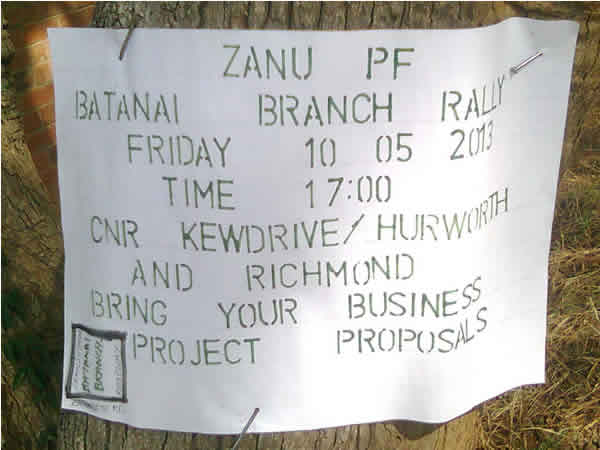Zimbabwean electoral reform and conditions are the subject of much discussion as Parliament begins debate on Zimbabwe’s Draft Constitution this week.
The Constitution, however, is just the beginning. As an article prepared for the Zimbabwe Election Support Network points out, a great deal of legal reform needs to happen in the coming months to prepare for Zimbabwe’s elections. For example, Zimbabwe’s Electoral Act will need to be revised to accommodate new structures including proportional representation.
In addition, the Zimbabwean electoral landscape needs to loosen up. This includes the media, the voter registration process, and also a respect for basic human rights like freedom of association, expression and assembly.
The International Crisis Group’s latest report Zimbabwe: Election Scenarios recognises the challenges that Zimbabwe’s electoral process will face this year, but is optimistic that if SADC draws “red lines” (think the US + Syria) which are enforced, Zimbabwe’s next election could be peaceful, and yield a credible result.
But as they note in their conclusion:
Progress is possible, but only if fundamental contradictions between the parties’ interpretation of what is now required are resolved. Whereas the MDC formations have called for the full resolution of outstanding election roadmap issues even after adoption of a new constitution, ZANU-PF says the new constitution should supersede the roadmap. Without agreement on such important issues, Zimbabwe is not ready for elections. At the same time, without a more concerted effort, there is no guarantee that deferring the election further will indeed lead to reform. At the very least, more robust engagement of civil society and citizens with SADC facilitators and GPA mechanisms, such as the JOMIC, is required to develop confidence in Zimbabwe’s battered institutions, especially through the deployment of an expanded monitoring presence.
This is exactly the problem: “Without agreement on such important issues, Zimbabwe is not ready for elections. At the same time, without a more concerted effort, there is no guarantee that deferring the election further will indeed lead to reform.”
If neither local politicians nor pressure from SADC have helped get agreement on these issues yet, why will the next six months be any different?










